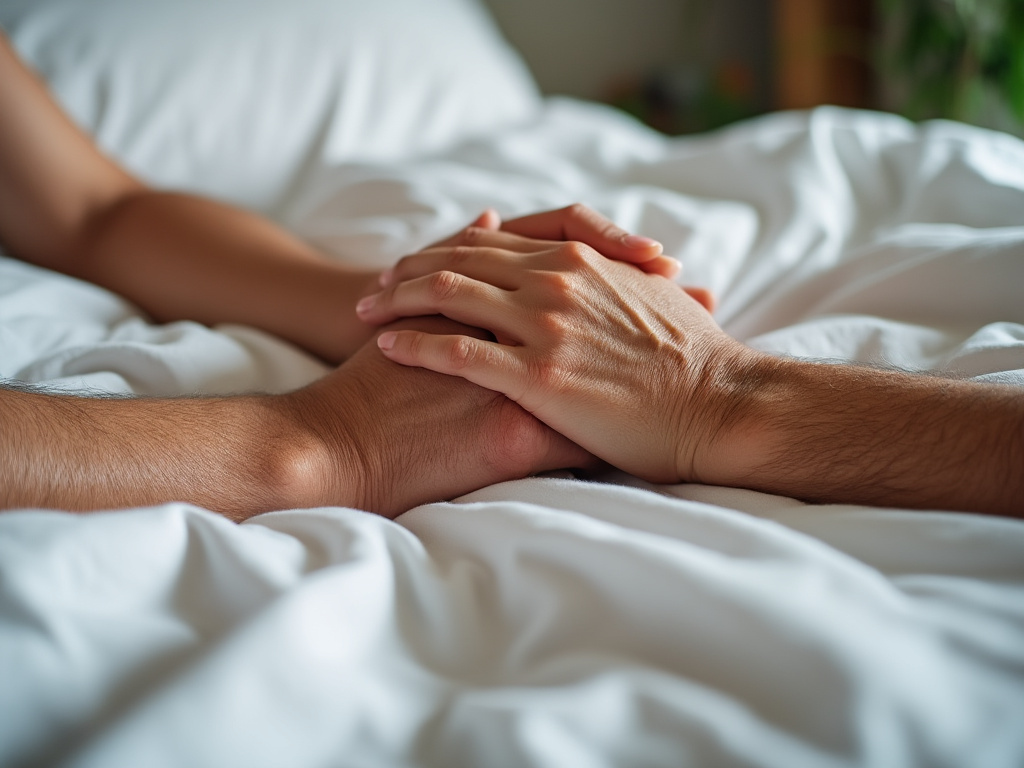We’ve all heard of low libido or sex drive….but what does it actually mean? The one sentence low libido meaning in a nutshell: You have no interest in having sex, masturbating or sexual thoughts.
Libido is your sex drive and if it’s low, you’re just not into in sex. Low libido is actually a pretty common – at least a third of women have it at some time. People don’t often talk about it but it happens in both women and in men, for various reasons – so let’s dieve in!
Table of Contents
Key Takeaway
- Low libido refers to a decreased interest in sexual activities and affects around one-third of women in the US at some point in their lives.
- Hormonal changes during menopause, certain medications, major life changes like childbirth, and psychological factors such as stress and relationship issues can contribute to low libido.
- Menopause causes a drop in estrogen and testosterone levels, leading to symptoms like vaginal dryness and decreased sex drive, which can affect sexual activity and desire.
- Depression, anxiety, and stress negatively impact sexual drive, underscoring the importance of addressing mental health issues to improve libido.
- Addressing low libido involves a combination of lifestyle changes, medical treatments, relationship counseling, and stress management techniques tailored to individual needs.
What Is Low Libido?
There is no official way to count or track if your libido is low. It’s not like we track how many times a week. It’s simple: if you just don’t have sexual thoughts or sexual desires over time, say 1-2 months, then we can say that you have low libido.
In the medical community the official diagnosis for low libido is called hypoactive sexual desire disorder. It is defined as having low desire for sex for 6 months or more. This being said, it can be difficult to subjectively determine, “what exactly is low desire”?
Approximately one-third of women in the US report experiencing low libido at some point in their lives, according to Cleveland Clinic. This prevalence emphasizes that low libido is a widespread issue, not an isolated one. If persistent and causing personal distress, consider seeking medical help.
Is a Low Sex Drive Really a Problem?
Low libido may be a problem that you want to change. Or you may just think ‘it is what it is’ and not be too concerned with your low libido. But it is actually healthy to have sex. Pretty much everyone can benefit from more sex. By not having sex, due to low libido issues, we miss out on an amazing magic pill of health benefits.
Physical contact, cuddling, sexual activity and orgasm all release the Love hormone oxytocin. The benefits of having sex and oxytocin include:
- Better sleep: an orgasm causes the release of melatonin, the Sleep hormone.
- A feeling of calm and well-being that comes from the mix of hormones released during sex.
- Lower blood pressure.
- Glowing and vibrant skin.
- Better immune system.
- A better relationship: sex keeps things flirty & fun between you and your partner.
- Better cardiovascular health.
- Improved self-esteem, better social interactions and increased trust.
- Decreased depression and anxiety.
- Feeling more relaxed and less stressed out due to decreased cortisol levels.
- Increased libido, so you’ll want to have even more sex.
- Immediate and drug-free pain relief.
Common Causes of Low Libido
Low libido, or decreased sex drive, can stem from various factors, affecting both men and women. Identifying the common causes is important for addressing this issue effectively.
Low Libido in Women
Specific Causes in Women
Low libido in women, affecting about one-third of US women at some point, can stem from multiple factors.
- Hormonal Changes: Hormonal shifts, especially during menopause, lead to decreased estrogen levels. This decrease often results in vaginal dryness, making sex uncomfortable and reducing sexual desire.
- Medications: Certain medications, including those for depression and high blood pressure, can lower libido. Examples include SSRIs and antihypertensive drugs, which often list reduced sexual desire as a side effect.
- Life Changes: Major life events like pregnancy, childbirth, and menopause can impact libido. These transitions bring physical and emotional changes that contribute to decreased sexual interest.
- Psychological Factors: Mental health issues, such as depression and anxiety, significantly affect libido. Relationship problems and high stress levels also play a role, creating a complex web of influences on sexual desire.
Impact of Menopause
Menopause significantly impacts libido due to hormonal changes. Estrogen levels drop, leading to physical symptoms like vaginal dryness and discomfort during sex. These changes can make sexual activity less appealing.
Post-menopausal women often experience a noticeable decline in testosterone, a hormone that influences sexual drive. Although lower in women, testosterone still plays a important role in maintaining libido. Thyroid conditions and certain birth control medications can further exacerbate libido issues during this stage.
Women often find this phase emotionally challenging, feeling frustrated and misunderstood. Reliable information and open discussions with healthcare providers can help manage these changes, addressing both physical and emotional aspects effectively.

At The Libido Doctor we help women who want to want it.
Join us to begin the journey with us to help you restore your libido. Want to learn more about what causes low libido in women and what you can do about it? Check out our blog: Low Libido In Women
Low Libido in Men
Low libido in men, typically have a different set of reasons so let’s take a quick look.
Specific Causes in Men
Hormonal imbalances, particularly low testosterone, are a primary factor affecting male libido. Conditions like diabetes and thyroid disorders can also hinder sexual desire. Mental health is important; stress, anxiety, and depression often diminish libido. Medications, such as SSRIs or antihypertensives, may reduce sex drive as a side effect.
Relationship dynamics, including communication problems or unresolved conflicts, can reduce sexual appetite. Lifestyle factors like lack of exercise, poor diet, and excessive alcohol intake adversely influence libido. Addressing these aspects often involves a comprehensive approach, combining medical and psychological interventions.
Age-Related Decline
Age significantly impacts male libido. Testosterone levels naturally decline by about 1% per year after age 30, contributing to reduced sexual desire. Menopause in women also correlates with a decline in male libido due to the interconnected nature of sexual relationships. Age-induced health issues, such as cardiovascular diseases, can further impair libido.
Managing this decline involves staying active and maintaining a healthy lifestyle. Hormone replacement therapy and lifestyle modifications can help counteract age-related libido decline, improving overall sexual health and well-being.
How to Address Low Libido
Addressing low libido involves diverse methods tailored to individual needs and circumstances. Combining various approaches can enhance effectiveness:
- Adopting healthy lifestyle changes, such as regular exercise, quality sleep, and a nutrient-rich diet, can naturally boost libido.
- Medical treatments like hormone replacement therapy can help if underlying health conditions affect sexual desire.
- Effective communication and emotional connection within relationships are crucial for maintaining libido, and
- Therapy can assist in addressing complex issues.
- Managing stress through relaxation techniques and mindfulness practices can also enhance sexual desire.
Combining these strategies can lead to a more fulfilling and satisfying sexual life. We offer fabulous masterclasses led by Dr. Diane Mueller and community for women to help navigate the complexities.
Conclusion
Getting a handle on low libido is key for boosting your well-being and relationships. Figuring out the different causes, like hormonal shifts or psychological stuff, can help you tackle the problem head-on. Whether it’s tweaking your lifestyle, trying out medical treatments, or going to counseling, there are plenty of ways to ramp up your sexual desire and have a more satisfying sex life. Mixing and matching strategies that work best for you can really help manage low libido and make you feel healthier and happier. Just be sure to talk to a healthcare pro to find what works best for you.











